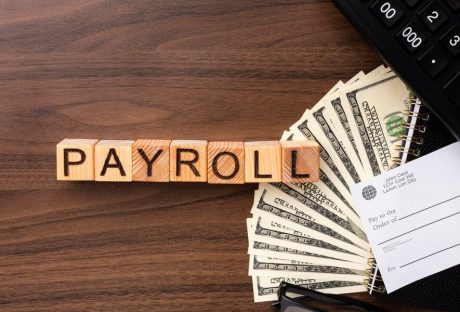When approaching retirement planning, it is widely recognized that starting early is a cornerstone of ensuring a secure and comfortable retirement.
The notion of an ideal retirement age may vary individually, but there are certain age-related milestones that can guide individuals in maximizing their retirement benefits and minimizing penalties.
Consistent saving from the beginning of one’s career, coupled with a clear understanding of these milestones, is essential in laying a strong foundation for the future.
Retirement planning is not a one-size-fits-all process; it involves a series of strategic decisions tailored to an individual’s life stages and financial situation.
Assessing how much do I need to retire on $100,000 a year in retirement is another critical component of the process. This involves not only saving but also making informed choices about retirement accounts and investments to ensure that the funds will grow adequately over time.
Individuals must also be mindful of specific age benchmarks that impact retirement planning. For example, being aware of when they are eligible for certain government programs and the implications of withdrawing retirement funds at various ages can help in avoiding unnecessary fees and optimizing benefits. This strategic management of timing in relation to age is a key aspect of effective retirement planning.
Determining Your Retirement Goals

When planning for retirement, individuals must carefully assess their financial needs and health factors to establish a clear and realistic set of goals.
Assessing Financial Needs
A critical step in retirement planning is determining the amount of savings required to sustain one’s desired lifestyle. Retirement calculators can be instrumental in estimating the necessary nest egg. These calculators assess current income, savings, and anticipated retirement age to provide a personalized savings goal. To tailor these estimates, individuals should consider:
- The proportion of current income they aim to replace during retirement is often recommended to be around 70-80%.
- Expected major expenses, such as housing and leisure activities.
- Potential sources of retirement income, including Social Security benefits, pensions, and annuities, which can reduce the reliance on personal savings.
Evaluating Health and Life Expectancy
Individuals’ health status and life expectancy play a significant role in retirement planning. Those in good health may require a larger nest egg to support a potentially longer retirement period. Key considerations include:
- Life expectancy data to inform the duration of retirement savings should last.
- The cost of health care, generally rises as one ages, necessitates a larger reserve in the retirement fund.
- Long-term care insurance can mitigate the risk of high unexpected health-related expenses.
By focusing on these aspects, individuals can establish a retirement plan that aligns with their unique circumstances and supports a financially secure and healthy retirement.
Retirement Savings Strategies
Optimal retirement savings strategies are centered on maximizing contributions to retirement accounts, understanding the significant effects of compounding over time, and balancing risk with investment choices.
Maximizing 401(k) and IRA Contributions
Individuals should aim to contribute the maximum allowed amounts to their 401(k) and IRA accounts each year. For 2024, the contribution limit for 401(k) plans is $20,500, with an additional $6,500 in catch-up contributions permitted for those aged 50 and over. IRAs offer a lower threshold, with a contribution limit of $6,000 and a $1,000 catch-up contribution. Taking advantage of these limits can significantly enhance one’s retirement savings, especially when employers match a portion of 401(k) contributions.
Understanding the Impact of Compounding
The power of compounding cannot be overstated in the context of long-term investment. When returns are reinvested, they generate additional earnings over time. This effect is particularly potent for those who start investing early. For instance, investing just $100 a month starting at age 20 could lead to a substantial accumulation by retirement age, assuming a modest annual return.
Balancing Risk and Investment
A well-balanced investment portfolio blends various asset classes, such as stocks, bonds, and possibly other investments, to align with one’s risk tolerance. Typically, stocks offer higher growth potential but come with increased risk, whereas bonds traditionally provide more stable, but often lower, returns.
As individuals approach retirement age, they may consider shifting their investment focus towards more conservative options to preserve capital. Additionally, the use of a Roth IRA can be beneficial for tax-free growth and withdrawals in retirement, depending on an individual’s tax situation.
Navigating Government Benefits
Government benefits for retirees hinge on correct timing and a thorough understanding of eligibility requirements. This section guides through Social Security and Medicare, two pivotal components of retirement planning.
Optimizing Social Security Benefits
To maximize Social Security benefits, individuals must consider their full retirement age (FRA), which varies from 65 to 67 depending on their birth year. Claiming benefits at the FRA ensures the full monthly benefit amount. However, one can begin receiving Social Security payments as early as age 62, but this results in permanently reduced benefits.
- Before FRA: Reduced benefits
- At FRA: Full benefits
- After FRA: Delayed retirement credits
Strategically, delaying Social Security benefits beyond the FRA can increase the monthly payment by a certain percentage until the age of 70, offering one of the simplest ways to enhance one’s retirement income.
Planning for Medicare Eligibility

Medicare eligibility begins at age 65, regardless of one’s FRA for Social Security. Enrolling in Medicare on time is critical as late enrollment can result in penalties and gaps in coverage. Medicare includes several parts:
- Part A: Hospital insurance, usually premium-free if one has paid Medicare taxes for a sufficient number of years.
- Part B: Medical insurance, covering doctor’s visits and outpatient services, which requires a monthly premium.
- Part D: Prescription drug coverage.
Understanding the interplay between Medicare and other health benefits is also important, as it might affect decisions regarding employment benefits or Marketplace coverage. Individuals should review their options within the IEP or Initial Enrollment Period (IEP). It begins three months right before the month of their 65th birthday whereas it ends after three months.
Conclusion: Preparing for the Unexpected
In retirement planning, addressing potential risks and preparing for unforeseen healthcare expenses are crucial. They often advise individuals on incorporating health insurance and long-term care into their financial strategy and emphasizing the importance of an emergency fund and insurance options.
Incorporating Health Insurance and Long-Term Care
One must assess the risk of healthcare expenses and the necessity for long-term care. Health insurance is vital for managing costs associated with medical care during early retirement, especially prior to Medicare eligibility at age 65. Long-term care insurance can safeguard one’s finances by covering expenses that traditional health insurance does not, such as in-home care or assisted living facilities.
- Assess Early Retirement Needs: Individuals retiring before age 65 should plan for their health insurance coverage to bridge the gap until Medicare.
- Long-Term Care Costs: Evaluate the potential need for long-term care services, which can quickly deplete retirement savings.
Building an Emergency Fund and Considering Insurance Options
An emergency fund is a backbone of financial security, acting as a buffer against unexpected expenses. They also stress considering various insurance options, such as life insurance, to mitigate financial risks to dependents. Furthermore, understanding penalty-free withdrawals from retirement accounts can provide greater financial flexibility in case of emergencies.
Emergency Fund Size: Aim to save at least three to six months’ worth of living expenses in an easily accessible account.
Insurance as a Safety Net:
- Life Insurance: Provides financial support to beneficiaries in the event of the policyholder’s death.
- Flexibility with Retirement Funds: Familiarize with conditions under which penalty-free withdrawals from retirement accounts are allowed, to avoid unnecessary financial strain during emergencies.
Read Also:























All Comments
Carolyn Chaya Hampton
Keep up the amazing work! Can't wait to see what you have in store for us next.